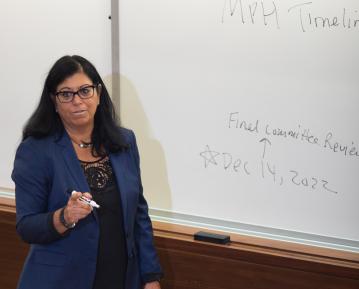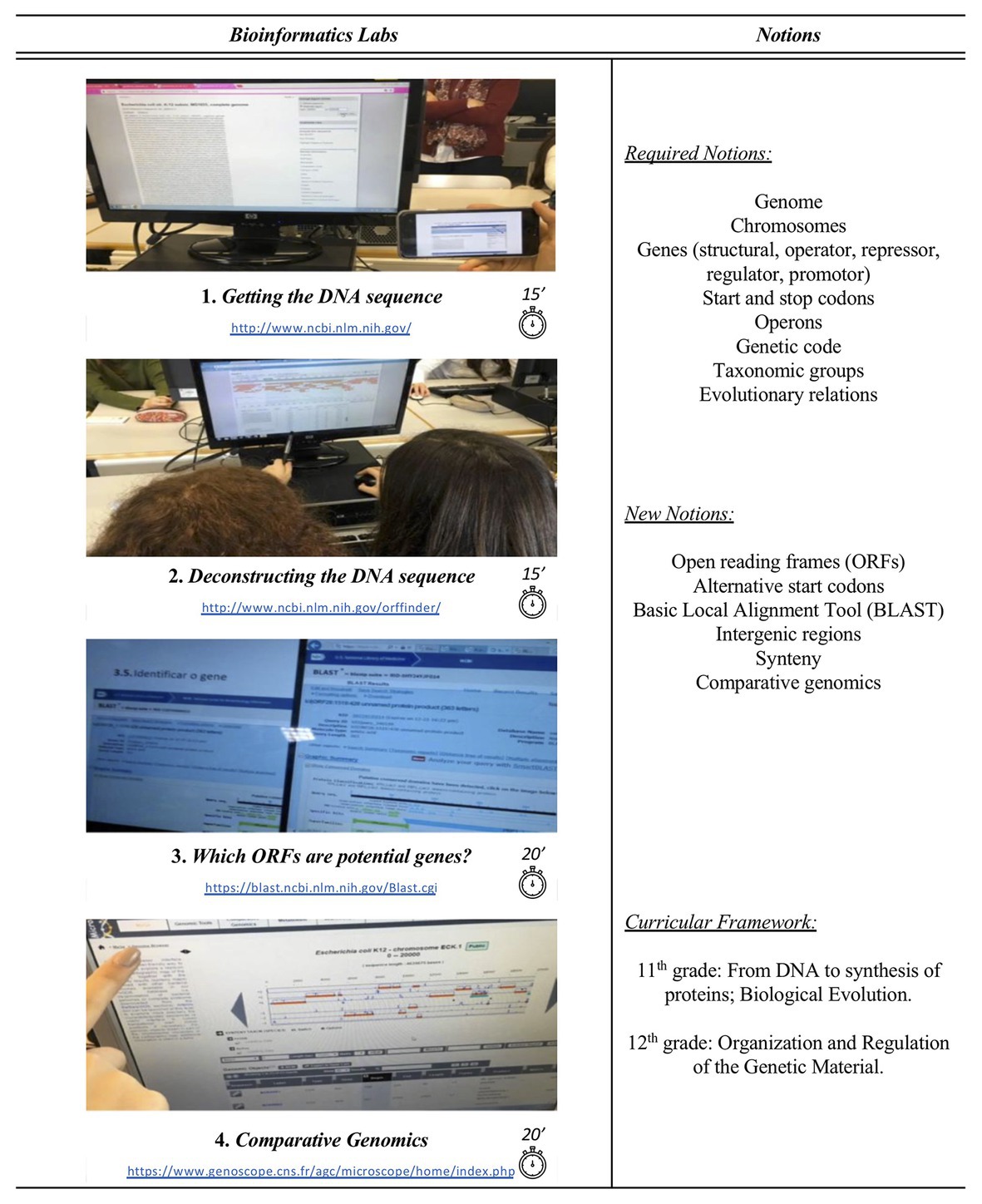Some Known Facts About Bioinformatics Tutor.
Some Known Facts About Bioinformatics Tutor.
Blog Article
Fascination About Bioinformatics Tutor
Table of ContentsThe Only Guide to Bioinformatics TutorThe Best Guide To Bioinformatics TutorOur Bioinformatics Tutor DiariesBioinformatics Tutor for BeginnersThe Bioinformatics Tutor Ideas
Of the total amount participants associated with the training, 80% were students from public higher education establishments, while the staying 20% came from personal establishments. To qualify for a certificate of involvement, trainees were needed to attend at the very least 90% of the complete training hours. As an outcome of this demand, an impressive 95% of the participants effectively obtained their certifications, having not just satisfied the minimum participation criteria however also finished all appointed activities throughout the training.
During the height of the COVID-19 pandemic, especially in between June and August 2020, the job team was entrusted with arranging specialized training in bioinformatics. This training was particularly focused on pupils from the research group Center for Research study in Applied Computer at the Federal College of Pará (UFRA) The adaptation to remote discovering systems as a result of the pandemic produced a possibility to explore brand-new teaching methods and digital devices that enhanced both reach and efficiency.
To react to the growing need in the computer and life scientific researches areas, a sophisticated program was introduced in 2020 labelled Intro to Artificial intelligence. This program was designed to provide an obtainable yet detailed overview of Artificial Intelligence techniques, particularly as applied in bioinformatics. The program was performed over 3 months, from October to December 2020, and was provided totally online with the Google Meet system. This online format allowed engagement from students across Brazil, many of whom may not have had the chance to participate in in-person sessions.
The smart Trick of Bioinformatics Tutor That Nobody is Talking About
Around 50% of the overall training hours were dedicated to practical activities where trainees developed smart models and applications in a variety of clinical domain names, consisting of genes, molecular biology, and environmental information evaluation. These platforms enabled students to involve in real-time information control, design training, and formula testing.
Sixty of them were connected with numerous higher education organizations in the state of Pará, while the continuing to be twenty came from institutions found in 5 other Brazilian states. By presenting Artificial Intelligence in a practical and relevant context, the effort served to connect the gap in between theory and real-world application, supplying students with a strong structure for future research or employment in the field.
The training initiative developed part of a more comprehensive scholastic outreach initiative called the Bioinformatics on the Road job. This project has, for many years, introduced dozens of students to the world of bioinformatics and computational biology. The occasions held under this umbrella campaign have happened across multiple regions and years, as summed up in Table 1 (Listing of occasions, locations, years, and total varieties of trainees and teachers)
Among one of the most amazing results of the Bioinformatics when driving initiative has actually been its contribution to the growth of decentralized research groups. Several of these groups, originally united by their engagement in training events, have actually considering that taken place to create independent clinical research in cooperation with local academic organizations. The training not only fostered scientific thinking within the context of bioinformatics yet additionally triggered collaborative connections that extended past the training atmosphere. These collaborations have actually caused increased neighborhood clinical performance and added meaningfully to the growth of the more comprehensive bioinformatics area in Brazil.
Some Known Incorrect Statements About Bioinformatics Tutor
The project itself was conceptualized and arranged by MB and RR, that looked after the planning and implementation webpage of each action. Lectures were delivered by a multidisciplinary group being composed of MB, FA, EF, KP, JS, DM, SN, LP, LG, AIR CONDITIONING, rr, and ih. The very same group, excluding IH and RR, also worked as tutors for the sensible training components. Financing for the job was offered with the grant 88887.200562/ 2018-00 from CAPES. The authors extend their appreciation to everybody that added to the realization of this task, whether directly or indirectly, since its creation.
The Federal College of Pará's Office of Study (PROPESP/UFPA) likewise supplied economic assistance, specifically for the production of the final manuscript. The writers declare no commercial or financial disputes of rate of interest that might have influenced the study. All analyses and opinions expressed in this article are entirely those of the writers and do not necessarily show those of their respective organizations, the author, editors, or reviewers involved in the magazine procedure.

Little Known Questions About Bioinformatics Tutor.
From an instructional viewpoint, the teaching method utilized in the training was purposefully interactive. Classes were performed in a way that encouraged pupil engagement and conversation, exceeding memorizing memorization to explore just how ideas are created, used in every day life, and tested in academic setups. The training philosophy concentrated on supporting both solid and struggling pupils, offering personalized support, and building self-confidence via sustained mentorship and perseverance.

Each team, containing around 36 individuals, was supported by three mentors-- many of whom hop over to these guys were postdoctoral researchers with specific knowledge. These coaches not only helped design the group projects however likewise facilitated their read here execution, making sure that each study question was both suitably difficult and appropriate. The goal was to give a naturally reasonable context that individuals might check out via open-ended goals and access to curated datasets.
For added understandings into the methodology and end results of this project-based discovering technique, viewers are guided to S1 Text, that includes in-depth summaries of the pedagogical framework, examination approaches, and project themes used in the training sessions.
Bioinformatics Tutor for Beginners
Of the total amount participants involved in the training, 80% were students from public higher education establishments, while the continuing to be 20% came from exclusive institutions. To qualify for a certification of engagement, trainees were required to attend at least 90% of the complete training hours. Notably, past the students that signed up in the training sessions, 7 skilled teachers participated in delivering the courses, while 3 dedicated study professors worked with the general training procedure. Around 50% of the complete training hours were committed to functional tasks where pupils constructed intelligent versions and applications in a variety of scientific domains, including genetics, molecular biology, and ecological information evaluation. The training not just promoted scientific thinking within the context of bioinformatics but additionally triggered joint connections that prolonged past the training atmosphere.
Report this page